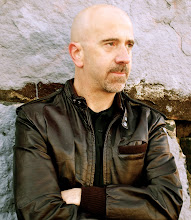Talk about your yin and your yang. The very same week Barry Eisler - the prototypical legacy publishing sensation - announces he is passing up a half-million dollar advance from St. Martin's in order to self-publish his next thriller electronically, Amanda Hocking - the protoypical self-publishing sensation - announces she is passing up self-publishing in order to accept a two million dollar advance from (who else?) St. Martin's for her upcoming four-book series.
Now, setting aside for a moment the observation that things can't be too horrible for legacy publishers, or at least for St. Martin's, if they're waving around amounts of cash that most of us can only fantasize about (Unlike at Dorchester, where they apparently don't have two nickels to rub together), it amazes me how much the writing and reading world seems to have rallied around one or the other of these two highly successful authors.
If you believe in legacy publishing, in the value of gatekeepers, in the old system, you need only point to Ms Hocking to prove your assertion. Here's a newcomer who has made roughly 17.24 gazillion dollars over the last year by foregoing the traditional route and what does she do? She jumps at her first chance to climb aboard the SS Tradition!
If you believe legacy publishing is a sinking ship, doomed to failure just as surely as the Titanic was doomed to slip under the waves of the North Atlantic after DiCaprio and Winslet cavorted abovedecks, you need only point to Mr. Eisler to prove your assertion. A longtime, highly successful member of the legacy publishing old guard and what does he do? He abandons the old guard to climb aboard...well...I'm about out of nautical metaphors, but you get the point.
The Interwebs have been in an uproar over this development all week, with authors and readers alike choosing sides like teenage girls ready to rumble over Team Edward vs Team Jacob. But here's what I wonder: Why all the conflict, especially among writers?
I suppose I can understand the traditionally published professionals feeling threatened, with people they see as not having paid their dues raking in amounts of money that would make Bernie Madoff blush. And I suppose I can understand the self-publishing proponents feeling hurt that their biggest star is abandoning them to sign with the enemy. But shouldn't the goal be opportunity for authors? And isn't that what we have right now?
I feel for Amanda Hocking, despite the wads of cash being thrown at her over the last year, because she doesn't seem the least bit interested in being anyone's banner-carrier. She strikes me as a nice young woman who just wants to write. And now she has the opportunity to do exactly that.
It's been suggested she signed with St. Martin's to gain some sort of validation, a charge she denies, and I believe her. But even if that's what she did, who cares? As someone who has tried for years to break into traditional publishing, I can tell you it's not easy to let go of the notion that you can have the biggest impact - and can only be seen as a true professional - by signing on the dotted line with one of the Big Six publishers.
Whereas Barry Eisler relishes conflict - he makes no bones about his political beliefs and doesn't care if he loses readers because of it - Amanda Hocking, from what I can tell by reading her public statements, would just as soon avoid it, unfortunately for her, since she is the face of self-publishing, for better or for worse, at least for now
So, who was right and who was wrong? Why can't we conclude they are both right? Both individuals did what they feel was best for them at the respective stages of each of their careers. Why can't we just leave it at that?
The continuing adventures of one man's quest to achieve publication, validation, and money-make...shun...
Saturday, March 26, 2011
Subscribe to:
Post Comments (Atom)















1 comment:
Great post, Allan!
Post a Comment